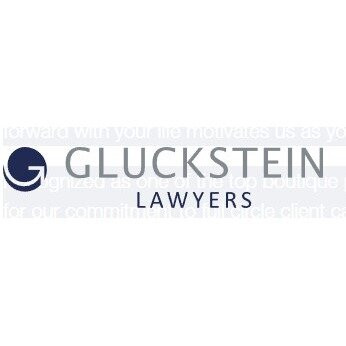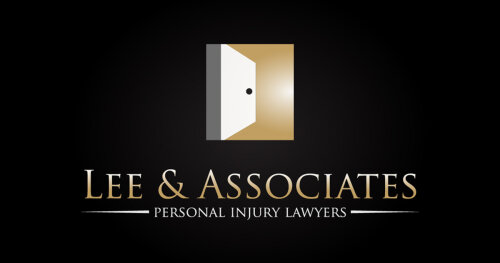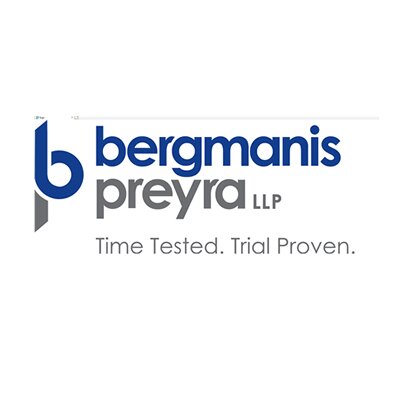Best Construction Accident Lawyers in Toronto
Share your needs with us, get contacted by law firms.
Free. Takes 2 min.
List of the best lawyers in Toronto, Canada
About Construction Accident Law in Toronto, Canada:
Construction accident law in Toronto, Canada focuses on providing legal assistance to individuals who have been involved in accidents at construction sites. These accidents may involve workers, bystanders, or visitors to the construction site. It is important to understand your rights and the legal recourse available to you if you have been injured in a construction accident in Toronto.
Why You May Need a Lawyer:
There are several situations where you may need a lawyer to assist you in a construction accident case:
1. Injury Compensation: If you have been injured in a construction accident, a lawyer can help you seek compensation for medical expenses, lost wages, rehabilitation costs, and pain and suffering.
2. Workers' Compensation Claims: If you are a construction worker who has been injured on the job, a lawyer can guide you through the workers' compensation claim process to ensure you receive the benefits you are entitled to.
3. Third-Party Liability: If a third party, such as a contractor, equipment manufacturer, or property owner, contributed to your construction accident, a lawyer can help you hold them accountable and recover damages.
4. Complex Legal Processes: Construction accident cases can involve complex legal procedures and extensive investigation. A lawyer with experience in this field can navigate these complexities and build a strong case on your behalf.
5. Negotiating with Insurance Companies: Lawyers can handle negotiations with insurance companies to ensure you receive a fair settlement that covers all your damages and losses.
Local Laws Overview:
Construction accident laws in Toronto, Canada are governed by both federal and provincial legislation. Some key aspects of local laws that are particularly relevant to construction accidents include:
1. Occupational Health and Safety Act (OHSA): This act outlines the responsibilities of employers, supervisors, and workers in maintaining a safe work environment. It sets regulations for training, protective equipment, and reporting accidents.
2. Workplace Safety and Insurance Act (WSIA): This act establishes the workers' compensation system in Ontario, which provides benefits to workers injured on the job, including construction workers.
3. Construction Projects Regulation: These regulations provide specific requirements for construction sites, including safety measures, inspections, and reporting of accidents.
Frequently Asked Questions:
1. Can I sue for a construction accident in Toronto?
Yes, you may be able to sue for a construction accident in Toronto if it was caused by negligence or a breach of duty by another party. Consulting with a lawyer can help determine the viability of your case.
2. How long do I have to file a construction accident claim in Toronto?
In Ontario, you generally have two years from the date of the accident to file a personal injury claim. However, it is advisable to seek legal advice as soon as possible to ensure your claim is filed within the appropriate timeframe.
3. Can I receive workers' compensation benefits for a construction accident?
Yes, if you are a construction worker, you may be eligible for workers' compensation benefits under the Workplace Safety and Insurance Act. A lawyer can help you navigate the claims process.
4. What types of compensation can I recover in a construction accident case?
In a construction accident case, you may be able to recover compensation for medical expenses, lost wages, future earnings, rehabilitation costs, pain and suffering, and other related damages. The specific amount will depend on the circumstances of your case.
5. How can a lawyer help me win my construction accident case?
A lawyer can gather evidence, interview witnesses, work with experts, negotiate with insurance companies, and represent your interests in court. They will build a strong case on your behalf to maximize your chances of success.
Additional Resources:
If you need further information or assistance regarding construction accidents in Toronto, Canada, consider reaching out to the following resources:
1. Ministry of Labour, Training and Skills Development: https://www.labour.gov.on.ca
2. Infrastructure Health and Safety Association: https://www.ihsa.ca
3. Workplace Safety and Insurance Board (WSIB): https://www.wsib.ca
Next Steps:
If you require legal assistance in a construction accident case in Toronto, Canada, consider taking the following steps:
1. Consult with a Construction Accident Lawyer: Schedule a consultation with an experienced lawyer who specializes in construction accident cases. They can provide personalized advice based on your situation.
2. Gather Relevant Information: Collect any documents, photographs, or evidence related to your case, including accident reports, medical records, and witness statements.
3. Discuss Fee Structure: Before hiring a lawyer, discuss their fee structure, including whether they work on a contingency basis (where fees are only paid if you win the case) or if there are any upfront costs.
4. Share Your Concerns: During the consultation, express your concerns and expectations to the lawyer. Be open and honest about the facts of the case to ensure they have a comprehensive understanding.
5. Take Timely Action: If you decide to proceed with legal representation, follow your lawyer's guidance to file necessary claims, meet deadlines, and initiate legal action in a timely manner.
Lawzana helps you find the best lawyers and law firms in Toronto through a curated and pre-screened list of qualified legal professionals. Our platform offers rankings and detailed profiles of attorneys and law firms, allowing you to compare based on practice areas, including Construction Accident, experience, and client feedback.
Each profile includes a description of the firm's areas of practice, client reviews, team members and partners, year of establishment, spoken languages, office locations, contact information, social media presence, and any published articles or resources. Most firms on our platform speak English and are experienced in both local and international legal matters.
Get a quote from top-rated law firms in Toronto, Canada — quickly, securely, and without unnecessary hassle.
Disclaimer:
The information provided on this page is for general informational purposes only and does not constitute legal advice. While we strive to ensure the accuracy and relevance of the content, legal information may change over time, and interpretations of the law can vary. You should always consult with a qualified legal professional for advice specific to your situation.
We disclaim all liability for actions taken or not taken based on the content of this page. If you believe any information is incorrect or outdated, please contact us, and we will review and update it where appropriate.














